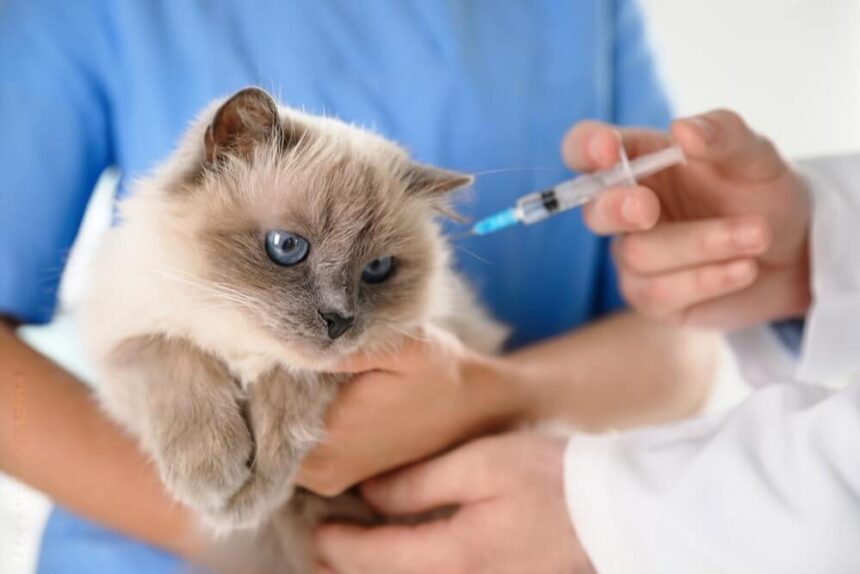Is your cat not eating after Convenia injection? That’s got to be stressing you out. We all know how picky cats can be with their food on a regular day, but when they outright refuse to eat, especially after a vet visit, it’s time to pay attention.
Convenia, the antibiotic that’s like a superpower in an injection, is often given to cats to deal with infections.
But, hey, sometimes this superhero shot comes with its own set of quirks, like your kitty suddenly turning its nose up at dinner.
What’s the Deal with Convenia Injection?
Convenia is kind of like the all-star of cat antibiotics. It’s a long-acting injectable antibiotic that vets love because it makes life easier for both you and your feline friend.
Instead of wrestling with your cat every day to give them a pill, they get one shot and boom—they’re good to go for up to two weeks.
But what is this magic juice, and why might it be causing your cat to go on a hunger strike?
How Does Convenia Work?
Convenia (yeah, that’s a fancy name) is a cephalosporin antibiotic, which basically means it’s a heavy hitter against bacterial infections.
It’s like the big guns you call in when your cat’s dealing with things like skin infections, urinary tract infections (UTIs), and even dental issues.
The best part? It starts working pretty quickly, and it sticks around in your cat’s system for a while, which means less stress for both you and your furball.
But here’s the catch—while Convenia’s doing its thing against the bacteria, it might be throwing your cat’s appetite out of whack. And that’s where things get tricky.
Why Is My Cat Not Eating After Convenia Injection?
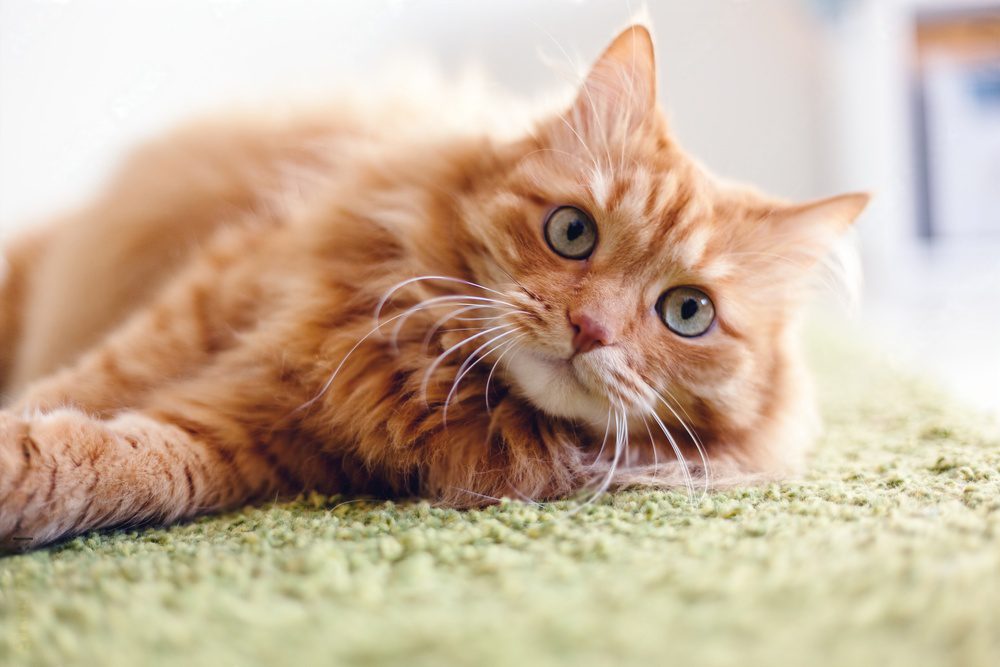
You might be scratching your head, wondering why your usually ravenous cat is suddenly on a food strike after getting a Convenia injection. It’s not super common, but it does happen. Here’s why:
Gastrointestinal Upset:
Convenia, like any antibiotic, can mess with your cat’s gut. This can lead to nausea, which might make your kitty just not feel like eating.
Imagine trying to eat when you feel queasy—it’s kind of the same deal for them.
Taste Aversion:
Sometimes, if a cat feels unwell or associates a certain experience (like an injection) with food, they might develop a temporary aversion to eating.
This can be particularly true if the cat was fed close to the time of the injection or if they were given treats at the vet’s office.
Pain or Discomfort:
Sometimes, the injection site might be a bit sore, or your cat might just feel “off” after getting the shot.
It’s like when you get a vaccine, and your arm’s a bit sore—you’re just not in the mood to do much, including eating.
Stress and Anxiety:
Cats are creatures of habit. Any change in their routine, like a trip to the vet, can stress them out big time.
Stress alone can make a cat refuse food, and when you toss in a medication that makes them feel different, well, there goes their appetite.
Behavioral Changes:
Some cats may exhibit changes in behavior after receiving an injection, including hiding or becoming more reclusive.
If your cat is hiding or spending more time resting, they might not be eating simply because they aren’t coming out to do so.
Convenia Injection Side Effects in Cats
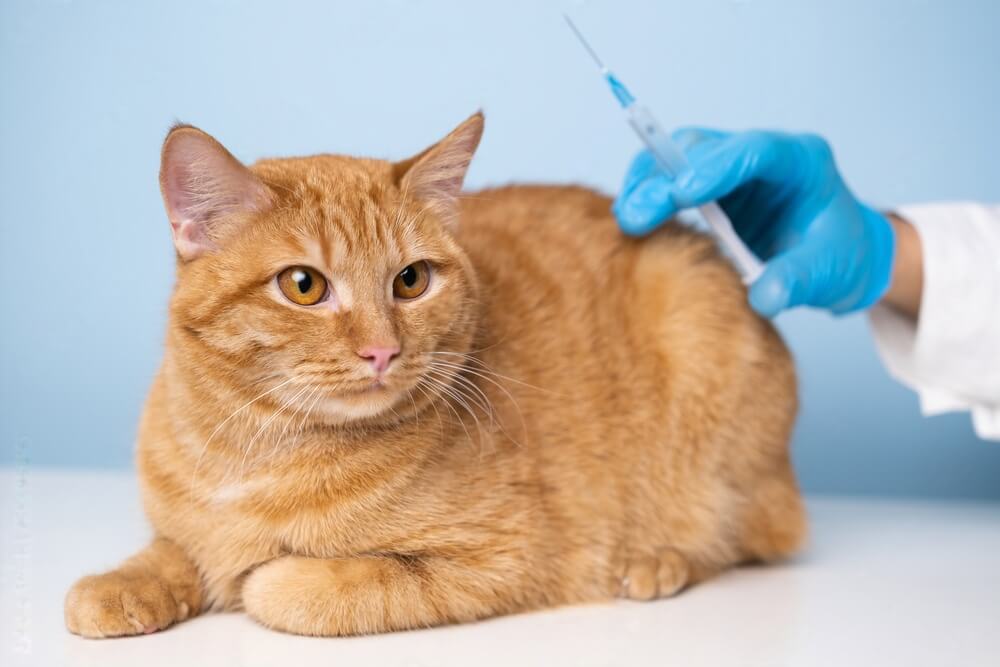
Convenia is generally safe, but let’s be real—every medication has potential side effects, and Convenia’s no exception. Here’s what you might see:
Lethargy:
Your cat might seem a bit more sluggish than usual. This isn’t too uncommon after any medication, but if it lasts more than a day or two, it’s worth a call to the vet.
Vomiting:
This is one of the more serious side effects, especially if it doesn’t stop. Keep an eye out for this, because persistent vomiting can lead to dehydration.
Diarrhea:
Another fun one, right? This usually ties back to the gastrointestinal upset we talked about earlier.
Allergic Reactions:
Though rare, some cats might have an allergic reaction to Convenia. This could show up as swelling, hives, or even difficulty breathing. If you see any of these, get your cat to the vet ASAP.
How Long Do Convenia Side Effects Last?
If your cat’s feeling off after a Convenia injection, you’re probably wondering how long this is going to last.
The good news is, most side effects are short-lived. A bit of lethargy or mild gastrointestinal upset might stick around for a day or two, but it shouldn’t be something that drags on for weeks.
However, because Convenia is a long-acting antibiotic, it does stay in the system for up to two weeks, sometimes even longer in some cases.
This means that while the worst of the side effects usually pass quickly, mild symptoms could hang around for a little while.
If you’re ever in doubt, though, don’t hesitate to give your vet a call.
Cat Not Eating After Convenia Injection: What Can You Do?
Alright, so your cat’s not eating, and you’re worried. Here are some things you can try to get them back on track:
Warm Up the Food:
Cats are like tiny food critics—they’re more likely to eat if the food smells good. Try warming up their wet food a bit to make it more enticing.
Switch It Up:
Maybe your cat just isn’t feeling their usual grub. You can try offering something different—like a new flavor of wet food, or even some plain, cooked chicken. Just make sure it’s something that’s easy on their stomach.
Hand-Feed Them:
Sometimes a little extra attention can do the trick. Try offering food from your hand. It might encourage them to eat, especially if they’re feeling a bit anxious.
Hydration Station:
If your cat’s not eating, make sure they’re at least drinking water. You can even offer some cat-safe broth to keep them hydrated.
Talk to Your Vet: If your cat hasn’t eaten in more than 24 hours, or if they’re showing other worrying symptoms, it’s time to check in with your vet. They might suggest an appetite stimulant or even fluids if your cat’s dehydrated.
Convenia for Cats: The Good, The Bad, and The Ugly
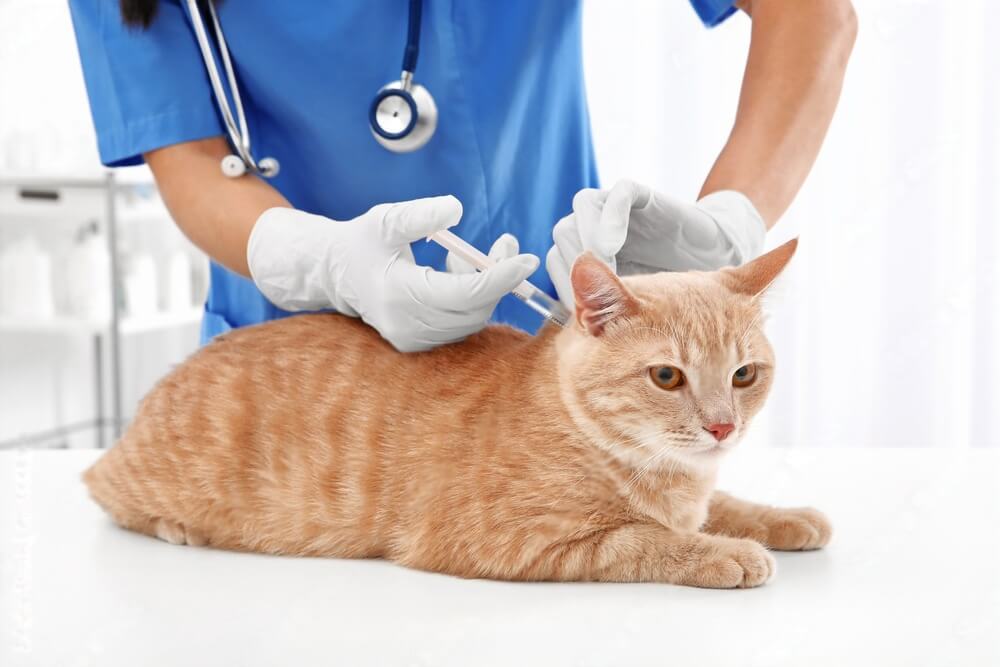
So, Convenia’s got its pros and cons like everything else. It’s super convenient (see what they did there? ), but it’s not without its risks. Here’s the lowdown:
The Good
No Daily Pills:
No more wrestling your cat to give them a pill every day. This alone is a huge win for a lot of cat owners.
Long-Acting:
You don’t have to worry about missing a dose—it’s one shot, and it keeps working for up to two weeks.
Effective:
Convenia is a powerhouse when it comes to fighting off bacterial infections. If your cat’s got a skin infection or a UTI, this stuff can be lifesaver.
The Bad
Side Effects:
Like we’ve covered, Convenia can cause some side effects, ranging from mild to more serious. You’ve got to weigh the benefits against these potential risks.
It’s Not for Every Cat:
Some cats just don’t do well with Convenia. If your cat’s had a bad reaction before, your vet might suggest a different treatment.
The Ugly
Allergic Reactions:
Though rare, an allergic reaction to Convenia can be serious. If your cat’s ever had a bad reaction to an antibiotic before, be sure to tell your vet.
Not Easily Reversible:
Since Convenia stays in the system for so long, if your cat does have a bad reaction, it’s not something that you can just stop like a pill. The effects will last, so you need to be aware of this going in.
Convenia Injection Dosage for Cats
Wondering about how much Convenia your cat actually got? Dosage is usually based on your cat’s weight, and the vet will calculate the exact amount needed.
The standard dosage is around 8 mg/kg, but don’t worry—your vet will have all that figured out.
If you’re curious, you can always ask your vet to explain how they calculated the dose. It’s your right as a pet parent to know what’s going into your cat’s body.
How Long Does It Take for Convenia to Work in Cats?
Convenia works pretty fast—within a few hours, it starts going to town on those bacteria.
You might notice your cat feeling better within a day or two, but it depends on what kind of infection they’re dealing with.
For some, the relief can be almost immediate; for others, it might take a little longer to see the full effects.
Convenia Injection for Cats: Reddit’s Take
If you’re like a lot of pet owners these days, you’ve probably hit up Reddit to see what other people are saying about Convenia.
You’ll find a mixed bag—some people swear by it, saying it’s a total game-changer, while others share horror stories of side effects.
One thing to keep in mind is that every cat is different. What works for one might not work for another, so while it’s good to read up on other people’s experiences, don’t let it replace the advice of your vet.
What to Do If You’re Worried About Convenia Side Effects in Cats
If your cat’s showing any worrying side effects after a Convenia injection, don’t wait around—give your vet a call. They can help you figure out whether it’s something that’ll pass on its own or if you need to take action.
In some cases, your vet might want to see your cat again to make sure everything’s okay. It’s always better to be safe than sorry when it comes to your fur baby’s health.
Convenia Injection for Cats UTI: A Lifesaver?
Convenia is often used to treat urinary tract infections (UTIs) in cats, and it can be super effective. UTIs can make your cat feel pretty miserable—think frequent trips to the litter box, discomfort, and even blood in the urine.
Convenia gets to work quickly, helping to clear up the infection so your cat can get back to their normal self.
But remember, UTIs can be tricky. If your cat’s had more than one, it might be worth discussing with your vet whether there’s an underlying issue that needs to be addressed.
FAQs
My cat isn’t eating after an antibiotic injection. Is this normal?
It’s not uncommon for cats to lose their appetite after receiving an antibiotic injection, such as Convenia.
This can happen due to mild gastrointestinal upset or stress from the vet visit. If your cat’s appetite doesn’t return within 24-48 hours, it’s important to contact your vet to rule out any complications.
Why is my cat lethargic after a Convenia injection?
Lethargy can be a side effect of Convenia, as well as other medications. This is typically mild and should pass within a couple of days.
However, if your cat remains lethargic for more than 48 hours or exhibits other concerning symptoms like vomiting or diarrhea, you should reach out to your vet for further advice.
What are the signs of an allergic reaction to Convenia in cats?
Signs of an allergic reaction include swelling, hives, itching, difficulty breathing, and extreme lethargy.
If you notice any of these signs, seek emergency veterinary care immediately.
Is it safe to give Convenia to elderly or sick cats?
Convenia can be used in elderly or sick cats, but it should be done under close veterinary supervision.
Your vet will assess the risks and benefits based on your cat’s overall health and any underlying conditions.
Can Convenia be reversed if my cat has a bad reaction?
Since Convenia is a long-acting antibiotic, it cannot be easily reversed or removed from your cat’s system.
This is why it’s important to monitor your cat closely after the injection and report any side effects to your vet as soon as possible.
How do I prevent side effects from Convenia in my cat?
While you can’t entirely prevent side effects, you can minimize risks by ensuring your cat is properly hydrated, feeding them a balanced diet, and discussing any concerns with your vet before the injection.
If your cat has had reactions to antibiotics in the past, inform your vet.
Can Convenia cause long-term issues in cats?
Long-term issues from Convenia are rare, but any severe reaction that isn’t promptly addressed can lead to complications.
Always follow up with your vet if your cat shows persistent or severe side effects.
What alternatives to Convenia are available if my cat can’t tolerate it?
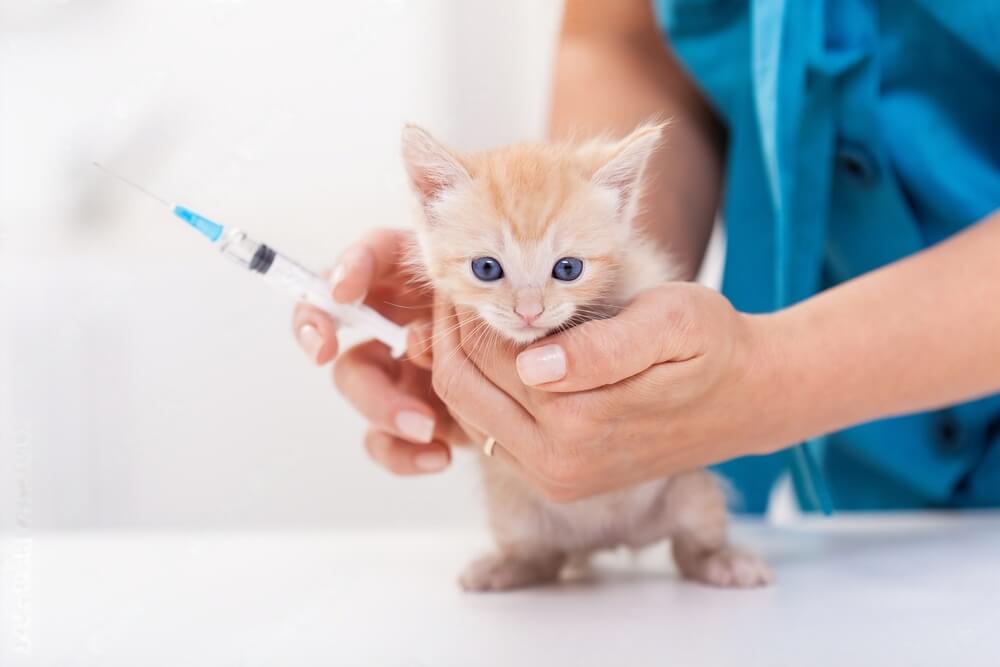
If your cat has a bad reaction to Convenia, your vet might recommend oral antibiotics or other injectable antibiotics that have a shorter duration of action.
Always discuss alternatives with your vet if you’re concerned about the risks of Convenia.
My cat isn’t eating after receiving a steroid shot. Should I be worried?
Steroid shots, such as those given for inflammation or allergic reactions, can sometimes lead to a temporary decrease in appetite.
This is usually short-lived, but if your cat refuses to eat for more than 24 hours, it’s advisable to consult your vet to ensure there are no underlying issues.
Can cats eat normally after receiving vaccinations?
Most cats can eat normally after receiving vaccinations. However, some may experience mild side effects like soreness at the injection site, mild fever, or a decrease in appetite.
These effects are usually temporary.
If your cat isn’t eating or shows signs of more severe reactions, such as swelling or difficulty breathing, contact your vet immediately.
Final Thoughts on Convenia Injection for Cats
Convenia can be a real game-changer for treating infections in cats, but it’s not without its potential downsides.
If your cat’s not eating after getting a Convenia injection, don’t panic—but do keep an eye on them.
Most of the time, any side effects are mild and pass quickly, but if you’re ever in doubt, your vet is your best resource.
At the end of the day, you know your cat better than anyone else. Trust your gut, and don’t hesitate to reach out for help if something doesn’t seem right.
credible resources you can refer to
American Association of Feline Practitioners (AAFP):
- Website: Cat Vets
VCA Animal Hospitals:
- Website: VCA Animal Hospitals
Cornell University College of Veterinary Medicine – Feline Health Center
- Website: Cornell Feline Health Center



